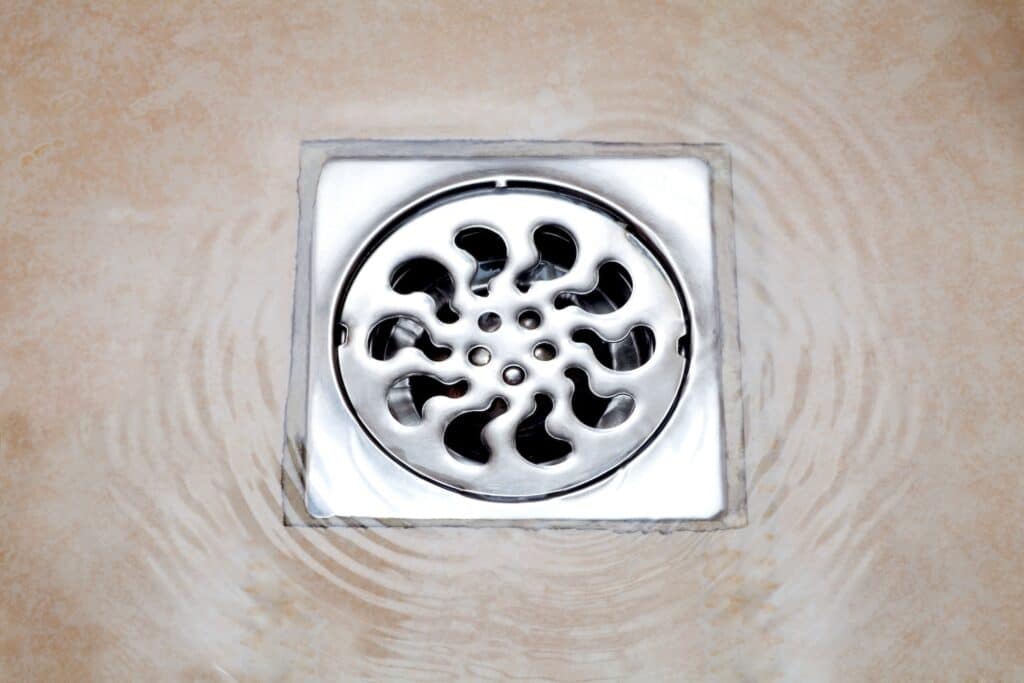3 Secrets for Consistently Clear Floor Drains
Imagine discovering that a slow-draining basement floor has turned into an expensive problem, just because it slipped your mind. You would be in good company – floor drains are often out of sight and out of mind until they can\’t be. The good news?
With the right approach, keeping them clear and trouble-free is simpler than you might think. In this article, you’ll learn three smart strategies that can help you avoid the frustration and expense of clogged floor drains, ensuring that your home stays protected and dry, without the stress.
1) Develop Your Preventative Prowess
Maintaining clear floor drains starts with a proactive approach to regular cleaning and prevention. To begin, make it a habit to clear debris from your drains every few weeks. Wearing gloves, remove any visible buildup using a small tool, like a plastic scraper or a brush, to avoid pushing debris further down the drain.
Once the surface is clear, pour a kettle of hot water down the drain. The heat helps dissolve any grease or soap residue that might be clinging to the pipes, keeping the water flow smooth.
Preventing future clogs is just as important as regular cleaning! Consider installing drain covers or strainers. These inexpensive tools catch hair, food particles, and other debris before they can enter the drain. Just remember to clean the strainer regularly—lift it out, toss the collected debris in the trash, and rinse it under hot water.
2) Embrace Enzymes
Enzyme cleaners offer a natural and effective solution for maintaining clear drains. These cleaners work by breaking down organic materials, such as hair, grease, and soap scum, which can accumulate and cause clogs over time.
To incorporate enzyme cleaners into your routine:
- Step 1: Choose an enzyme cleaner specifically formulated for drains. Make sure it targets the types of build-up you’re concerned about.
- Step 2: Apply the cleaner before bed. This allows the enzymes to work overnight when the drain isn’t being used, maximizing their effectiveness.
- Step 3: Use the cleaner weekly or bi-weekly, depending on how often your drains are used. Consistent application will keep your drains clear and reduce the need for more intensive cleaning methods. Enzyme cleaners are gentle on your plumbing and safe for the environment, making them a smart choice for ongoing maintenance.
3) Assess Drain Strain
How to Test the Drainage
- Pour a gallon of water slowly down the drain.
- Watch how the water drains—if it flows quickly and smoothly, your drain is in good condition. If it drains slowly or makes gurgling sounds, there might be a developing clog or build-up within the pipes.
If you notice any issues, don’t wait to take action. Start by pouring another round of hot water down the drain to see if that improves the flow. If not, consider using a drain snake to clear out any obstructions. If this doesn\’t resolve the problem, it may be time to escalate the issue to an expert. However, regular testing like this keeps your drains functioning efficiently and helps you avoid more significant repairs down the line.
Other Recommended Maintenance
- Gutters: Keep gutters free of leaves and debris to prevent water from pooling near your foundation, which can lead to basement flooding and excess strain on floor drains.
- Leaks: Inspect pipes and fixtures throughout your home for leaks. Even a small drip can lead to significant water damage over time and contribute to excess moisture around floor drains.
- Your Sump Pump: If you have a sump pump, ensure it’s in good working condition. Test it periodically by pouring water into the sump pit and making sure the pump activates and drains the water efficiently.
- Basement Cracks: Inspect your basement walls and floors for cracks, and seal them with a waterproof sealant. This can prevent water intrusion, reducing the amount of water your floor drains need to manage.
- Water Pressure: High water pressure can put extra strain on your plumbing system, increasing the risk of leaks and pipe bursts. Install a water pressure regulator if necessary, and keep pressure levels within the recommended range (typically 40-60 psi).
When to Call a Professional
Even with diligent maintenance, if you’re dealing with persistent clogs that won’t clear despite your best efforts, specialized tools and knowledge are required.
Another red flag is the presence of foul odors coming from your floor drains. This could be a sign of a blockage, a sewer gas leak, or other serious issues that can’t be resolved with basic DIY methods.
Visible water damage around your floor drains is another situation that warrants professional attention. Dampness, stains, or mold growth near the drain suggests that water isn’t draining as it should, which can result in long-term damage to your home.
Finally, if you hear strange noises like gurgling or bubbling from your drains, it could indicate a blockage or venting problem within your plumbing system.
Conclusion
Consistent, smart maintenance is the key to keeping your floor drains clear and functional. Regular cleaning, the use of enzyme cleaners, and routine water flow tests are all simple yet effective strategies that can prevent costly plumbing issues and protect your home from water damage.
If you encounter persistent problems or notice signs of trouble, it’s wise to seek professional help. Early intervention from an expert can save you from more significant damage and expense. For thorough inspections and expert advice, contact Champia today in Atlanta, GA to assess your home’s drainage system.


